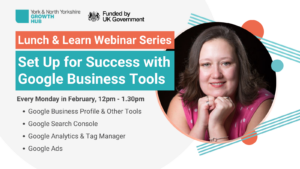
Managing business costs
During difficult economic times, and particularly when inflationary pressures are driving costs up, effective cost management becomes an even more critical component of running a successful business. Controlling and reducing costs can secure and strengthen your financial position.
In this article, we’ll look at ways to approach managing costs in your business, and identify areas where you can save money by reducing expenses. Remember though, it is important not to stick your head in the sand when things are getting tough – and even more so if you feel all options have been exhausted. In these situations, try and speak to a restructuring specialist or insolvency practitioner sooner rather than later. Such specialists have the experience to identify what can be done to help a business survive, so the earlier you engage with them the better, as more options tend to be available.

Look closely at your expenses
To begin managing costs effectively, you must first understand where your money is going. Look at your financial statements and categorise expenses into fixed, variable, and discretionary categories. This will help you learn which areas of your business are consuming the most resources.
Identify how and where you can save money
Once you have all your expenses laid out and categorised, you can start to work out where you can potentially reduce costs without compromising the quality of your products or services. Some initial steps might be:
- Negotiate with your suppliers: Speak to your suppliers to see if it is possible to negotiate for better terms, discounts, or bulk pricing. If they can’t, do your research on alternative suppliers for cost-effective options. For example, Quote My Energy can help you compare offers from different energy suppliers.
- Review contracts and subscriptions: Regularly review all your subscriptions, contracts, and service agreements. Identify any unused or unnecessary services that can be cancelled or renegotiated to reduce costs.
- Streamline operations: Evaluate your business processes to see if there are any areas where you could make things more efficient. Often, you may find that a process you set up in the early days of your business but have just ‘got used to’ can be improved. Streamlining operations can lead to cost savings through improved productivity.
- Technology investments: Invest in technology that can automate tasks, improve efficiency, and reduce labour costs. Cloud-based software solutions, for example, can replace expensive on-premises infrastructure.
- Energy efficiency: As well as supporting your sustainability goals, implement energy-efficient practices can help lower utility bills. This can include using LED lighting, optimising heating and cooling systems, and reducing energy waste. Ofgem has advice and links to business energy grants and loans on its website.
- Stock management: Keep a close watch on your stock levels to avoid overstocking. Excess stock can reduce your available cash and storage space.
- Outsourcing: Does every task need to be done within your business? Review whether certain tasks or functions can be outsourced to reduce labour and operational costs. The British Business Bank has a guide on outsourcing for smaller businesses that may be useful.
Monitor and control variable costs
Variable costs are expenses that fluctuate with your business activity levels. Keep a close eye on these costs and look for opportunities to control them during periods of low demand or revenue volatility.
Evaluate marketing and advertising costs
Review your marketing and advertising plans and expenses to determine their effectiveness. Consider reallocating budget from less effective channels to those that generate a better return on investment (ROI) with targeted marketing based on your audience knowledge. Remember that maintaining and increasing income goes hand-in-hand with reducing costs, so you need to be careful not to stop marketing activities entirely.
Employee costs
A difficult area to review can be employee salaries and benefits, but these are typically among the most significant expenses for businesses and should be looked at rigorously when evaluating costs. While you should always strive to compensate your employees fairly to attract and retain good staff, consider strategies such as performance-based bonuses, flexible work arrangements, or training in more than one area of work to maximise their productivity and value to the company. If you are really struggling with costs you may have to consider redundancy, evaluating carefully the impact on the company if you lose an employee, and how and if their work would be picked up by others.
Cut costs on your tax bill
Take advantage of tax deductions and relief that is available for things like purchasing new equipment purchases, energy efficiency measures and other areas of expenditure.
Cost transparency and accountability
Be open with your employees when things are tough. Encourage a culture of cost transparency and accountability within your organisation – during the good times as well as the tough ones. Make employees aware of the importance of cost control and involve them in the process of finding cost-saving opportunities – some of the best ideas will come from those closest to the day-to-day activity.
Talk to your peers
You won’t be the only one feeling the effects of a difficult economic environment. Talk to peers in your industry to find out what they are doing to save money. And you can get in touch with one of our advisers to find out what they have been hearing and recommending to other businesses in the area.
By carefully reviewing our expenses, setting a realistic budget, and reducing costs where possible, you can improve your business’s financial health, and be ready to weather the tougher times. And remember that cost management is not solely about cutting expenses but also about making wise investments that contribute to your business’s growth and sustainability.

Learn more
Find out how to write a business budget
See what funding is available if your business is in crisis or risk of bankruptcy
Articles
Kick Off In Business: Fully Funded Opportunity
Online business start-up & self-employment courses funded by York and North Yorkshire Combined Authority’s Adult Skills Fund, providing straightforward, practical information and guidance for anyone who is in the process of setting up a business or simply exploring the idea.
Carbon Literacy Training for SMEs
Curious what Carbon Literacy could do for your organisation? You’ll meet our friendly Carbon Literacy Facilitator, Ali Fisher, and get a taste of how this practical training can help your business cut costs, attract and retain great people, and stand out in bids, tenders and investment conversations.
Strive Live Start-Up Incubator: March
If you are currently running or looking to launch a start-up based in York & North Yorkshire, join this award-winning incubator designed to help grassroots entrepreneurs launch their business. Strive Live blends weekly live online training with regular one-to-one advice and on-demand online learning to make it simple and exciting to start a business. Plus, you could win up to £2,500 in micro grants at the end of the programme.
Events
03rd March 202611:00 am - 1:00 pmFREE
Online Workshops: Digital Marketing Success Series (Intermediate)
Join our Digital Marketing Success Series designed especially for small business owners who want to grow online, even if you don’t consider yourself “tech-savvy.” This weekly workshop series will guide you through the basics of digital marketing and on to more advanced strategies – all at your pace.
Resources
Communications for Small Businesses Series: Webinar Recordings
This webinar series will guide you through the steps needed to embrace communications for your business, in an authentic and impactful way.
Webinar Series: Set Up for Success with Google Business Tools
This series explores the free tools available from Google to help small businesses increase their online presence. Plus, you’ll learn how to leverage Google’s paid advertising platform for scalable growth without feeling like you are just wasting money. Participants will leave feeling confident to start using Google Tools to Improve their visibility, generate leads and make more sales online.
Webinar Recording: PR for Small Businesses
Want to get your business featured in newspapers and magazines in 2026? In this webinar, Jo and Linda explain why you should be prioritising PR – including reaching a new audience (outside your social media bubble), building trust and credibility, and boosting your sales and SEO.







